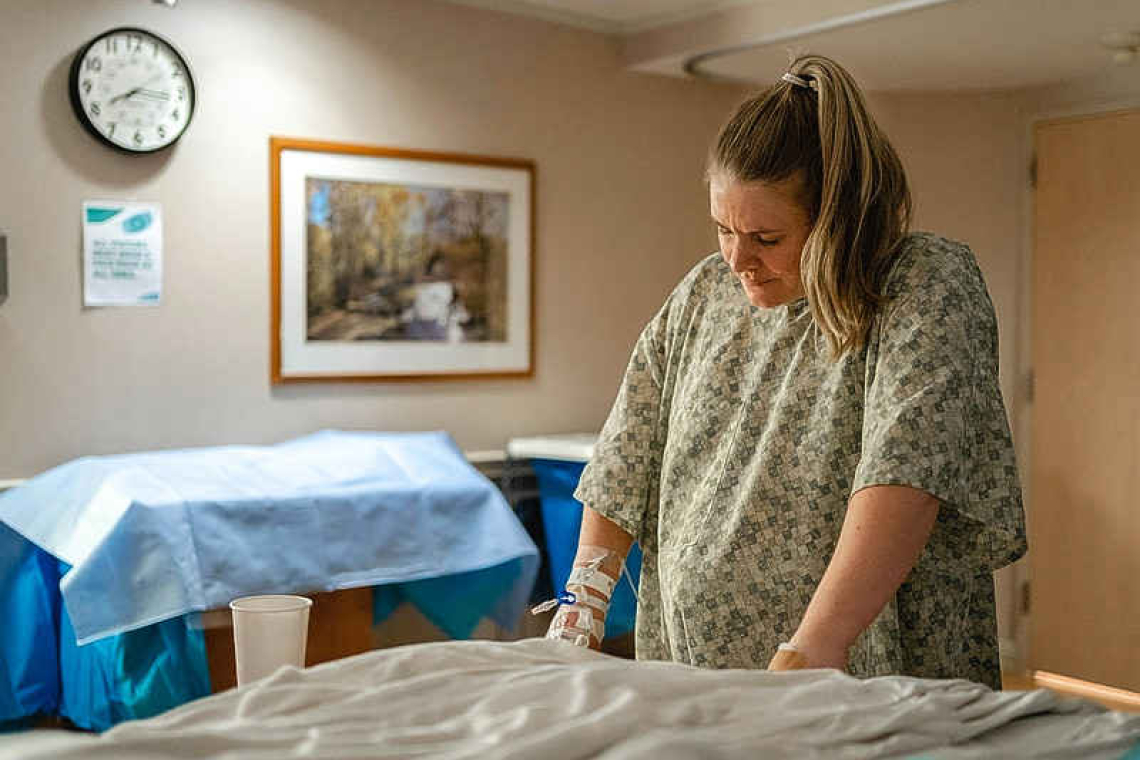By Dr. Colin Michie FRCPCH University of Central Lancashire.
My womb is a dance
Of leaves sweating swift winds
I laugh with guitars
––Haiku, Sonia Sanchez
Traumatic experiences related to pregnancy and birth are common, but rarely discussed or shared. They can have long-term impacts on a woman, her partner, their transitions to parenthood and even the early management of their infant and the new family.
Thoughts of trauma conjure up traffic accidents, hurricanes, perhaps the loss of a family member or the pandemic. Traumas come in many sizes, shapes and forms. Their effects on us are linked to their immediate physicality and also to our reactions to them. Memories of these events can resurface through our lives, causing anxieties and agitation long afterwards. This is post-traumatic stress disorder (PTSD).
Traumas linked to pregnancy can be severe, falling into quiet and sometimes hidden places. They are not always recognised by communities or professionals, and often do not receive the support and care they deserve. Complications such as miscarriage, problems including pain around the birth or raised blood pressure can traumatise mothers. These can set in train challenges with bonding with and feeding the infant, mental health during challenging times with a toddler or establishing family relationships over several years.
Concerns around having a baby can be measured by collecting together the amazing variety of superstitions and customs through the centuries that young mothers have taken – or been given – for protection. For instance, writing a magic text or blessing in butter or cheese, then eating these items became a common approach in medieval Europe to ensure safe births. Charms, amulets, girdles, texts, chants, prayers and other local practices are used today. Patron saints, fairies, magical springs, caves and hills persist, passed on by families as part of a tradition of support and care.
Miscarriage and stillbirth can be a cause of hidden traumas. Although the reasons for such losses are often not known and difficult to identify in an individual pregnancy, their numbers have fallen in the Caribbean region since 2000. So although these risks exist, they can be reduced for many. How was this achieved? Attention to stopping smoking, using illegal drugs, eating a good diet and checking on weight and blood pressure are all beneficial. Treating infections with group B streptococcus can reduce complications in pregnancy. In some parts of the world, vaccinating a mother against tetanus has greatly improved the chances of the new-born surviving.
The birth of a child may be praised as a wonderful event by families, but may be described by approximately a third of mothers as traumatic. This is because they experienced physical or emotional harm, or thought their life, or that of their baby, was threatened during the process. Perhaps the birth was obstructed and forceps were employed, or surgery was recommended to make the birth safer. Some mothers describe extreme levels of pain at or following the birth.
Childbirth involves dramatic physiological and psychological changes for a mother. It follows that opiates, surgery or invasive approaches are not always the most logical or effective approaches to “curing” their perceptions. One might cite the book of Genesis – pain or suffering is to be expected in childbirth – but each mother has her own story. Listening to this should form a reasoned basis for improving her care. This is the ubuntu principle used in many African communities, where the interconnectedness, the ecology of communities, applies to many aspects of parenting, starting with pregnancy and childbirth.
As a result of challenges through pregnancy, between 4% and 6% of mothers will develop a post-traumatic stress disorder after the birth. This figure rises to over 40% in mothers whose infants were admitted to special care. The World Health Organisation has laid out in detail how careful management of pregnant mothers may be conducted in order to reduce complications relating to their mental health. It is not that new medical diagnoses have been made, but rather that there is improved understanding of the processes involved and their potential complications. Should babies require Hospital care, their nurses need particularly good supportive skills to help the mothers.
Culturally sensitive midwifery care delivered in communities has contributed to improvements with many aspects of pregnancy and childbirth. Personalised, respectful midwifery can provide both non-pharmacological as well as pharmaceutical approaches. These can limit suffering experienced by a mother before, during and after childbirth. In particular, wise and evidence-based support following delivery can reduce rates of post-traumatic stress and a great deal of anxiety.
Our brains normally take time to overcome sudden changes. We therefore need to support mothers and their midwives. Communities and their health-care services can collaborate to reduce the severity and risks of post-natal complications. This is how the village begins to care for a new arrival.
Useful resource:
Dr. Colin Michie is currently the Associate Dean for Research and Knowledge Exchange at the School of Medicine in the University of Central Lancashire. He specializes in paediatrics, nutrition, and immunology. Michie has worked in the UK, southern Africa and Gaza as a paediatrician and educator and was the associate Academic Dean for the American University of the Caribbean Medical School in Sint Maarten a few years ago.







